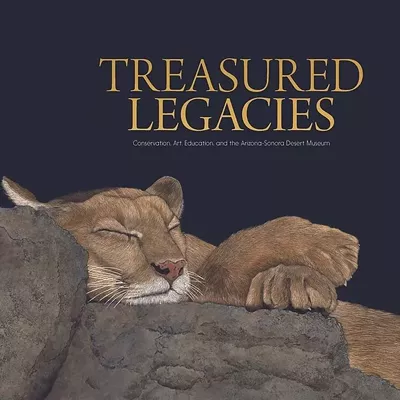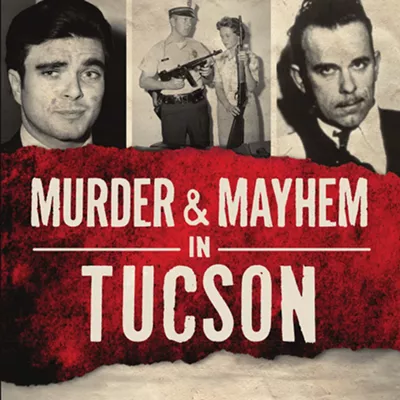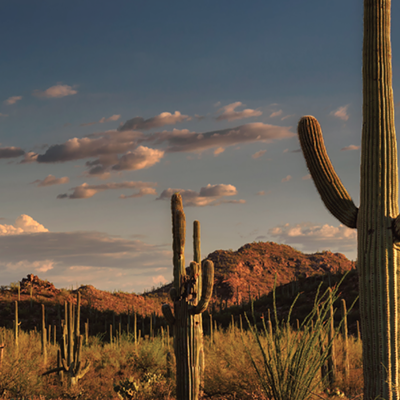While many writers would love to tell his story, there's no need: Burciaga himself grew up to be a writer, a damn fine one, and became a leading Chicano voice in the literary world and beyond. Books, essays, columns and poetry flowed out of him, touching upon issues we know all too well when it comes to U.S.-Mexico relations, including racism, language phobia, cultural indignation and food follies.
The Last Supper of Chicano Heroes: Selected Works of José Antonio Burciaga is the first collection of the author's work. Found in the collection are essays, poems, illustrations and the beginning of an unpublished memoir, cut short by his death in 1996. Titled "The Temple Gang," the memoir deals with Burciaga's El Paso childhood. The account of his early, West Texas years is quick, posing simple questions and divulging honest anecdotes--exactly what a teenager would do. Burciaga makes his memoir realistic and interesting by asking why it was so difficult to feel tied to Mexico, even when the border was only 10 miles away, and by expressing his emphatic joy at being named to the all-city football team.
The memoir comes at the end of the book, after essays, poetry and previously unpublished illustrations, ranging from deadpan satire to thoughtful critiques of the Mexican/U.S. experience. A lot of the essays are taken from three prior books: Weedee Peepo (1988), Drink Cultura (1992) and Spilling the Beans (1995).
Besides words, Burciaga is renowned for his mural at Stanford University, the namesake of this book: "The Last Supper of Chicano Heroes." It's a Chicano spin on Leonardo da Vinci's famous mealtime Jesus painting. La Virgen de Guadalupe, patroness of Mexico, hovers over the dinner table, with a variety of Chicano heroes in attendance, including Cesar Chavez, Emiliano Zapata, Dolores Huerta, Frida Kahlo, Che Guevara and Dr. Martin Luther King.
Language and food are two subjects that Burciaga loves to discuss. One of the first essays in the book is a humorous take on the idea of getting rid of all the Spanish names throughout Los Estados Unidos. This was a response to California Republican Sen. S.I. Hayakawa's decision to draft a constitutional amendment that would have made English the official language of the United States.
"Arizonans were fuming over their proposed new state name of Arid Zone," he writes, continuing on to say that all the retirees down in Boca Raton, Fla., weren't too thrilled to change their fair city's name to "Rat's Mouth."
Not only do Burciaga's opinions on linguistics shine; his informative chapters on the history of words, phrases and the evolution of the Spanish and English languages are masterful ruminations. Burciaga has a genuine ability to enlighten readers to the historical truths and roots of words and phrases, while at the same time stoking the funny bone.
For example, he gets very academic while describing where the word "caramba" came from, only to disclose a few sentences later that, technically, Speedy Gonzalez is shouting "Penis! Up! Up!" and that, without the owners knowing it, in Berkeley, Calif., there's a restaurant called "Oh, Penis!" Burciaga also examines the back stories of words and phrases that have stereotyped Mexicans and Mexican-Americans, such as "pachuco" and "batos locos."
After reading a few pages in the "Cooks and Comidas" section, it becomes clear that Burciaga is passionate about food. "I Remember Masa" delves into all things tortilla, from his fond memories of using tortillas as hand-warmers and masks to examining the differences between corn and flour varieties. A brief tutorial on how to cook your own is even included.
The chapter on Taco Bell opening in Mexico City finds Burciaga in fine form, highlighting the cultural mash-up taking place while maligning the fast-food empire for taking advantage of low-income Latinos.
For Burciaga, "culture is not a spectator sport that can be bought. It has to be lived." In this book, Burciaga easily illustrates how much he cares about all the cultures he lives in--Chicano, American and the combination of the two. If he were alive today, I'm sure he would have something thoughtful and acerbic to say about our failed immigration policies and the new monstrosity on sale at Taco Bell, the Crunchwrap Supreme. The Last Supper of
Chicano Heroes: Selected
Works of José Antonio Burciaga Edited by Mimi R. Gladstein and Daniel Chacón
University of Arizona Press
256 pages, $16.95







